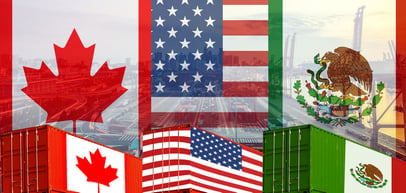- Home
- About
- Services
- Tools & Resources
- Client Info
- Request Info
- Carrier Tools
- Contact Us
- Get a Quote
- Français
What have we learned?
Here are some common issues we’ve been seeing importers struggling with—and our advice for making the process smoother.
The two biggest issues we’re seeing are:
Goods must meet the new USMCA/CUSMA product-specific rules of origin regardless of when they were manufactured. This means that some goods manufactured during NAFTA times may no longer qualify as originating under the new agreement.
Importers may only complete the certificate on the basis of:
Ask your materials’ suppliers for certifications of origin under USMCA/CUSMA—even domestic suppliers.
Importers must have all necessary information to complete the certification of origin, including documents that demonstrate that the good is originating from the actual producer.
Remember that the rules are based on possibly two tests:
While (unfortunately) nothing is simple under USMCA/CUSMA, here are some of our favorite resources for importers:
It’s been a challenging year navigating not just a new North American trade agreement, but a global pandemic seriously impacting global trade.
We asked our Consulting department for their advice on how best to work with their Customs brokers and consulting partners as they navigate both USMCA/CUSMA and the supply chain disruptions resulting from Covid:
Our consulting department is well-versed in the complexities of trade agreements, and particularly how changing agreements impact importers. We understand the new USCMA/CUSMA regulations and are ready to help you streamline your cross-border trade. Contact us today!
USMCA/CUSMA. It's what we do.